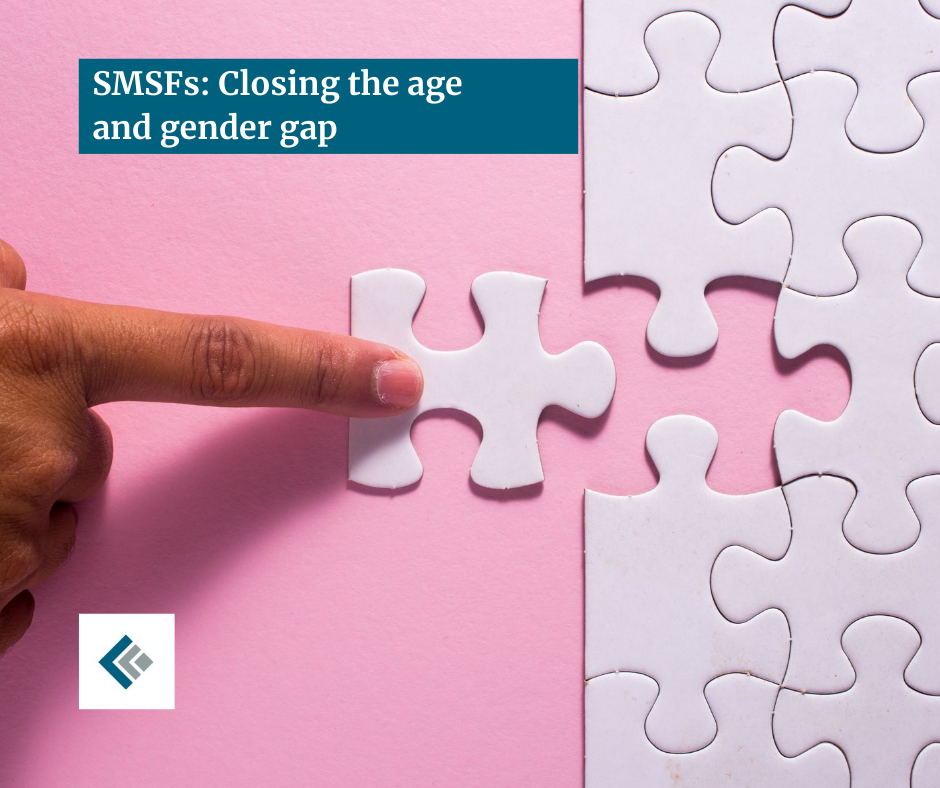
Talking to your employer about setting up an arrangement to “sacrifice” some of your pre-tax salary could potentially lower your tax bill – and boost your retirement nest egg.

Talking to your employer about setting up an arrangement to “sacrifice” some of your pre-tax salary could potentially lower your tax bill – and boost your retirement nest egg.

A balancing act Billed as a Budget for families with a focus on relieving short-term cost of living pressures, Treasurer Josh Frydenberg’s fourth Budget also has one eye firmly on the federal election in May.

It seems like June 30 rolls around quicker every year, so why wait until the last minute to get your finances in order?

Legislation has come into effect allowing a maximum of six members in an SMSF. What does this mean for your SMSF, and will this make it easier when it comes time to pass your super on to the next generation?

What are the arguments for and against having your own Self Managed Super Fund (SMSF)? We discuss in our latest post.

A recent ATO report showed Australians under the age of 45 now make up around 47% of all new SMSF trustees. So what’s driving younger people to SMSFs?

Legislation has passed, taking effect from 1 July 2021, which increases the number of members allowed in an SMSF from 4 to 6. How could this impact you?

Separation and divorce can be a challenging time, often made all the more difficult when you have to divide your assets. So how do you go about decoupling your superannuation?
In years gone by, superannuation was not treated as matrimonial property, so divorce settlements typically saw the woman keeping the house as she generally had the children and the man keeping his super. In a sense, neither party won. She ended up with a house but no money for her retirement while he had nowhere to live but money for his later years.
To remedy this situation, since 2002 super can be included when valuing a couple’s combined assets for a divorce settlement. After all, these days super is probably your second largest asset after your family home.
While super is counted in the calculation of the total property, that does not mean it is mandatory to split the super – the choice is yours.
Unlike the early 2000s, both partners are likely to have superannuation these days although traditionally women will still tend to have lower balances.i On average, women retire with just over half the super balance of men and 23 per cent of women retire with no super at all.
As a result, many divorcing couples may end up splitting super along with their other property.
If you decide to split your super, then you have three avenues, but keep in mind that all require legal advice.
The three ways to split your super are:
A court order is the last resort if you can’t agree on a property settlement.
You can split your super as you choose both in terms of the amount and the timing. You can split it as a percentage or as an agreed figure and you can choose to split it immediately or at some time in the future. Much will depend on each of your life stages.
But whatever you decide, you MUST comply with the superannuation laws. Money received from your partner’s super must be kept in super unless you satisfy a condition of release. You also need to be mindful of taxable and non-taxable components and divide them equally.
Say the superannuation balances of a couple is $500,000 with John having $400,000 and Susie $100,000. If the property settlement on divorce was decided as a straight 50:50 split and it included the super, then John would need to give $150,000 of his super to Susie.
Susie would nominate a fund and the money would be transferred.
If you have a binding financial agreement or a court order, this transfer of assets from one fund to another will not trigger a CGT event. But if you don’t have such an agreement, then John would trigger a CGT event on the $150,000 he transferred. Susie, meanwhile, would have the advantage of resetting the cost base on her received $150,000. So, a win for Susie, but not for John.
If John happened to be in the pension phase but Susie was still too young, the money that is transferred from his super to Susie will be treated according to his situation. As a result, Susie would be able to access the money before she reached preservation age.
If you have a self-managed super fund, the situation could get a little more complicated as you have to deal with the issue of trusteeship.
If there are only two members/trustees in the fund and Susie chose to leave, then John would either have to find a new trustee within six months or change to a corporate trustee where he could be the sole director.
Assets within an SMSF can also prove an issue, particularly if a sizeable proportion of the fund was tied up in a single asset such as commercial premises. How easy would it be to sell the premises? What if the property was John’s business premises and the means by which John was in a position to pay Susie child support? These are questions that need addressing.
If you are in the process of divorce or considering it, please reach out to the Sherlock Wealth team here to help you plan your finances before and after the event.

Almost anyone can set up an SMSF together. SMSF’s can have up to four members. There is a proposal to increase this to six but at the time of writing this legislation has not passed.
Usually, members are all in the same family, although it is possible to set up an SMSF with other people.
So is it a good idea to add your adult children to your fund? Here are a few thoughts that might help you decide.
The benefits of adding your children to your SMSF
Larger investment pool and greater diversity
By adding your children to your SMSF you increase the amount you can invest. This means that you can diversify the SMSF portfolio even more, potentially including assets that typically have a higher minimum investment level such as property.
Passing down assets may be easier
Rigorous estate planning is essential for any SMSF, but with a careful strategy, adding your children to your fund could help pass down wealth smoothly. Their understanding of money management may also be improved by having oversight of your finances from an early stage.
Lower costs
By adding more people to your super fund, you may be able to reduce the average running costs of the account and avoid paying multiple fees.
Potential downsides of adding your children to your SMSF
Differing priorities
It could be difficult to figure out exactly how to structure your SMSF since the investment horizon, strategies and risk appetite could differ quite dramatically between you and your children.
Family dynamics
Before you get wrapped up in each other’s finances, it’s important that you have a clear, open and trusted relationship with your children and their partners. Have a transparent conversation about what being part of the SMSF means, and make sure they know what is expected of them when it comes to decision-making and the practicalities of tax time.
To understand what the right structure is for you and your family, please reach out to the Sherlock Wealth team to discuss your unique situation here
Any advice is general in nature only and has been prepared without considering your needs, objectives or financial situation. Before acting on it you should consider its appropriateness for you, having regard to those factors
Source: TAL

As anyone who has joined the weekend crowd at Bunnings knows, Australians love to DIY. And that same can-do spirit helps explain why 1.1 million Aussies choose to take control of their retirement savings with a self-managed superannuation fund (SMSF).
As well as control, investment choice is a key reason for having an SMSF. As an example, these are the only type of super fund that allow you to invest in direct property, including your small business premises.
Other reasons people give are dissatisfaction with their existing fund, more flexibility to manage tax and greater flexibility in estate planning.
If you think SMSFs are only for wealthy older folk, think again.
The average age of people establishing an SMSF is currently between 35 and 44. They’re also dedicated. The majority of SMSF trustees say they spend 1 to 5 hours a month monitoring their fund.i,ii
But an SMSF is not for everyone. There has been ongoing debate about how much you need in your fund to make it cost-effective and whether the returns are competitive with mainstream super funds.
So is an SMSF right for you? Here are some things to consider.
Running an SMSF comes with the responsibility to comply with superannuation regulations, which costs time and money.
There are set-up costs and ongoing administration and investment costs. These vary enormously depending on whether you do a lot of the administration and investment yourself or outsource to professionals.
A recent survey by Rice Warner of more than 100,000 SMSFs found that annual compliance costs ranged from $1,189 to $2,738. These are underlying costs that can’t be avoided, such as the annual ASIC fee, ATO supervisory levy, audit fee, financial statement and tax return.iii
If trustees decide they don’t want any involvement in the administration of their fund, the cost of full administration ranges from $1,514 to $3,359.
There is an even wider range of ongoing investment fees, depending on the type of investments you hold. Fees tend to be highest for funds with investment property because of the higher management, accounting and auditing costs.
By comparison, the same report estimated annual fees for industry funds range from $445 to $6,861 for one member and $505 to $7,055 for two members. Fees for retail funds were similar. Fees for SMSFs are the same whether the fund has one or two members.
As a general principle, the higher your SMSF account balance, the more cost-effective it is to run.
According to the Rice Warner survey:
Returns also tend to be better for funds with more than $500,000 in assets.
Even though SMSFs with a balance of under $100,000 are more expensive than industry or retail funds, they may be appropriate if you expect your balance to grow to a competitive size fairly soon.
While SMSFs offer more control, that doesn’t mean you can do as you like. Every member of your fund has legal responsibility for ensuring it complies with all the relevant rules and regulations, even if you outsource some functions.
SMSFs are regulated by the ATO which monitors the sector with an eagle eye and hands out penalties for rule breakers. And there are lots of rules.
The most important rule is the sole purpose test, which dictates that you must run your fund with the sole purpose of providing retirement benefits for members. Fund assets must be kept separate from your personal assets and you can’t just dip into your retirement savings early when you’re short of cash.
If you considering rolling the balance of an existing super fund into an SMSF, it could mean losing your life insurance cover. To ensure you are not left with inadequate insurance you may need to arrange new policies.
If you would like to discuss your superannuation options and whether an SMSF may be suitable for you, please reach out to the Sherlock Wealth team to discuss your unique situation here
iii https://www.ricewarner.com/wp-content/uploads/2020/11/Cost-of-Operating-SMSFs-2020_23.11.20.pdf